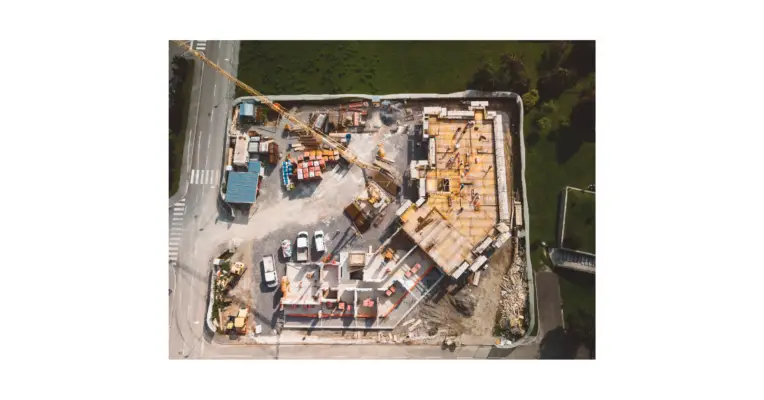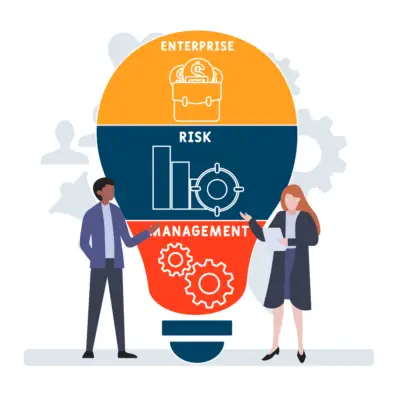Construction project management is critical in the construction industry, overseeing the planning, design, and execution of various construction projects.
The role requires individuals with strong leadership skills, technical proficiency, and an eye for detail to ensure that projects are completed on time, within budget, and to specifications. The following are some of the ways to become one.
Complete an Accredited Qualification: Certificate IV in Building and Construction (Building) (CPC40120) is a great entry-level qualification. The Diploma of Building and Construction (Building) (CPC50220) goes a bit further and is often pursued by those wishing to become building and construction managers.
A Bachelor of Construction Management provides a more comprehensive grounding in construction management principles. Alternatively, the Graduate Diploma of Construction Management provides additional specialized knowledge for those with a related degree.
Get a White Card: In Australia, anyone who works on a construction site must hold a White Card. This officially recognized qualification demonstrates that you’ve completed general construction induction training. You can obtain one through a registered training organization.
Gain Practical Experience: Working on construction sites, whether through an apprenticeship, internship, or paid position, is crucial. This practical experience will allow you to see how projects are run and understand the numerous elements involved, from safety to budgeting and coordination among trades.
Apply for a Construction Project Manager Licence: Depending on your state or territory, you may need a specific license to work as a construction project manager. Be sure to check the specific requirements where you live.
Remember to stay updated with the latest industry practices and trends. Join professional organizations and participate in workshops, seminars, and networking events. Maintaining required licenses or certifications is essential, often requiring ongoing professional development.
Becoming a construction project manager is difficult but can be achieved through education, experience, networking, and soft skill development.
This article aims to guide how to become a competent construction project manager by outlining the key steps involved in pursuing this career path.
From understanding the role of a construction project manager to acquiring relevant education and training, gaining practical experience, and developing essential soft skills such as communication and problem-solving abilities- we will cover all aspects required to enter this exciting field.
Keep reading for anyone interested in pursuing a career as a construction project manager or looking to enhance their existing skill set.

Understand the Role of a Construction Project Manager
The role of a construction project manager involves overseeing and coordinating various aspects of a construction project, including budgeting, scheduling, procurement, and quality control.
The responsibilities of a construction project manager are vast and require a deep understanding of the industry and excellent communication skills. A construction project manager must be able to manage multiple tasks simultaneously while ensuring that each aspect of the project is completed to the overall plan.
One of the challenges that a construction project manager faces is managing expectations while balancing competing interests. This requires excellent negotiation skills to meet stakeholders’ needs while staying within budget constraints.
Additionally, unforeseen issues can arise during any stage of the construction process that can set back timelines or increase costs. Adapting quickly and finding solutions to problems is essential for success in this role.
Another challenge faced by construction project managers is managing risk. Construction projects have inherent risks related to safety, environmental regulations, legal requirements, and financial considerations.
A skilled construction project manager must be able to identify potential risks before they occur and develop contingency plans to mitigate them effectively.
Becoming a successful construction project manager requires industry experience, strong leadership qualities, and an unwavering commitment to delivering quality results on time and within budget constraints.
Acquire Relevant Education and Training
Appropriate education and training are crucial for individuals seeking to excel in overseeing construction projects. Construction project managers require technical and managerial skills, which can be developed through formal education programs.
Degree options for aspiring construction project managers include bachelor’s degrees in civil engineering, construction management, or architecture. In addition to degree programs, certification programs offer specialized training in construction project management.
These certification programs typically cover risk management, quality control, safety procedures, and contract negotiation. Some examples of widely recognized certifications in this field include the Project Management Professional (PMP) certification from the Project Management Institute (PMI), Certified Construction Manager (CCM) from the Construction Management Association of America (CMAA) and LEED Green Associate certification from the US Green Building Council.
Acquiring relevant education and training is critical for those interested in becoming successful construction project managers. By obtaining a degree or certification in this field, individuals can develop the technical knowledge and managerial skills necessary to oversee complex building projects effectively.
Moreover, employers often prefer candidates with formal qualifications since it demonstrates their commitment to the profession and ability to perform at high levels within their organizations.
Gain Practical Experience
Gaining practical experience is crucial for individuals seeking to excel in overseeing complex building projects. It allows construction project managers to understand better the processes involved in construction, which can help them effectively manage their teams and ensure that projects are completed on time and within budget.
Hands-on training is a great way for aspiring project managers to gain practical experience in the field.
One way to get hands-on training is through apprenticeship programs offering structured, on-the-job training opportunities. These programs allow participants to work alongside experienced professionals while learning the ins and outs of the construction industry.
Apprenticeship programs typically last three to five years and may require participants to complete classroom-based instruction and hands-on training.
In addition to apprenticeship programs, individuals seeking practical experience can also seek internships or entry-level positions in the construction industry. These positions allow individuals to learn about different aspects of building projects while gaining valuable real-world experience.
Develop Key Soft Skills
Developing key soft skills is essential for excelling in overseeing complex building projects. Effective communication is one of the most important aspects when working as a construction project manager.
It involves conveying information clearly and concisely, listening actively, and adapting communication styles to suit different stakeholders.
A construction project manager must also possess strong problem-solving techniques. They must identify potential issues, develop solutions, and implement them effectively while keeping all stakeholders informed. This requires analytical thinking, creativity, and the ability to evaluate multiple options quickly.
Developing key soft skills such as effective communication and problem-solving techniques can make all the difference in becoming a successful construction project manager.
These skills are essential for managing teams effectively, navigating challenging situations confidently and professionally, and ensuring that building projects are completed on time and within budget constraints.
Network and Build Relationships
Establishing and nurturing professional connections with industry experts and stakeholders is crucial to forging a successful career in building construction. Networking allows you to learn from experienced professionals, access new job opportunities, and stay updated on industry trends.
Attending industry events such as conferences, seminars, and trade shows is an excellent way to meet people in the field who can provide valuable insights into your profession.
Online networking has become increasingly popular due to its convenience and accessibility. Social media platforms like LinkedIn are great resources for connecting with other professionals in the building construction industry.
Creating a strong online presence through a well-crafted profile can help showcase your skills, experience, and accomplishments while making it easier for potential employers or clients to find you.
Networking isn’t just about meeting people; it’s about building relationships that can benefit both parties. It’s important to remember that networking is a two-way street; be willing to offer help or advice when someone asks for it.
Building meaningful relationships takes time and effort but can pay off significantly in the long run by opening doors to new opportunities or collaborations.
As you progress as a construction project manager, maintaining relationships with previous colleagues, mentors, and clients will be invaluable resources that can help propel your success forward.

Frequently Asked Questions
What are the most common challenges faced by construction project managers daily?
Construction project managers face daily challenges in managing resource allocation and addressing unforeseen issues. These can include budget constraints, delays in material deliveries, weather-related disruptions, safety hazards, and conflicts among team members.
Effective communication, planning, and problem-solving skills are essential to overcome these obstacles and ensure project success.
How can a construction project manager balance the needs and demands of multiple stakeholders, such as clients, contractors, and team members?
Effective stakeholder communication and conflict resolution are crucial for a construction project manager to balance the needs and demands of clients, contractors, and team members. Professionalism, organization, and attention to detail are key in managing these relationships.
What are some effective strategies for managing tight project schedules and deadlines?
Effective project team communication and time management techniques are essential for tight project schedules and deadlines.
Clear timelines, regular progress updates, and contingency plans can help ensure the successful completion of a construction project within the given timeframe.
How can a construction project manager ensure all team members adhere to safety protocols and regulations?
Effective team communication and training programs ensure all construction project team members adhere to safety protocols and regulations. Regular safety meetings, clear guidelines, and ongoing education can prevent accidents and promote a safety culture on site.
What emerging trends or technologies in the construction industry should project managers know?
Project managers should stay informed about emerging trends in the construction industry, such as the benefits of prefabrication and robotics. These technologies can improve efficiency, reduce costs, and increase safety on job sites.

Conclusion
Construction project management is a highly demanding and rewarding career that requires a combination of technical expertise, managerial skills, and practical communication abilities.
The role of a construction project manager is to oversee the planning, design, execution, and delivery of construction projects within budget and timeline constraints while ensuring quality standards are met.
To become a successful construction project manager, one must have relevant education and training in the field. Acquiring practical experience by working on different projects under the guidance of experienced professionals can help aspiring project managers build their skills and knowledge base.
Developing key soft skills such as leadership, teamwork, problem-solving, negotiation, and time management can also contribute to becoming an effective construction project manager.
Networking with industry professionals through attending events or joining professional organizations can help build relationships that could lead to job opportunities or partnerships.
In conclusion, becoming a competent construction project manager requires dedication and commitment to acquiring relevant education and practical experience while developing essential soft skills like leadership and communication.
Following these steps diligently with an eagerness to learn from experts in the field will ultimately lead to success in this challenging yet rewarding profession.

Chris Ekai is a Risk Management expert with over 10 years of experience in the field. He has a Master’s(MSc) degree in Risk Management from University of Portsmouth and is a CPA and Finance professional. He currently works as a Content Manager at Risk Publishing, writing about Enterprise Risk Management, Business Continuity Management and Project Management.


